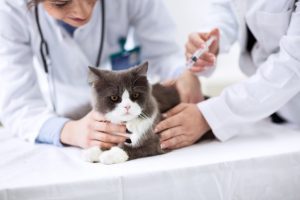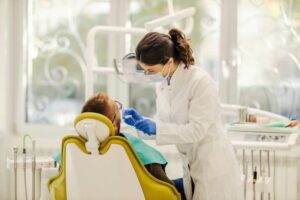
When it comes to our pets’ health, we often think of dental and dermatological issues as separate concerns. However, did you know that there is a significant link between dental and dermatological conditions in our furry friends?
It turns out that the health of their teeth and skin are closely intertwined, and addressing one can positively impact the other. Let’s explore the connection between dental and dermatological conditions in pets and understand why a holistic approach is crucial for their well-being.
Dental Health and Dermatological Conditions: The Connection
Inflammation and Immune Response
Both dental and dermatological conditions can trigger an inflammatory response in the body. Inflamed gums and infected teeth release bacteria and toxins into the bloodstream, which can lead to systemic inflammation. This inflammatory response can affect the skin, leading to allergies, dermatitis, and hair loss.
Oral Bacteria and Skin Health
The mouth is home to various bacteria, including harmful ones that can cause infections. When dental hygiene is neglected, these bacteria can spread to other body parts through the bloodstream.
Skin infections, hot spots, and irritation can occur due to the bacteria reaching the skin’s surface. If you notice any skin issues in your pet, it’s important to seek professional advice from animal dermatology services.
Self-Grooming Habits
Pets, especially cats, are meticulous groomers. When they have dental issues, they may experience discomfort while grooming themselves, leading to decreased grooming habits. This can result in poor skin health, matting, and an increased risk of skin infections.
The Importance of a Holistic Approach
To ensure our pets’ optimal health, it is crucial to take a holistic approach that addresses both their dental and dermatological needs. Recognizing the link between these two areas can improve their overall well-being and prevent potential health complications. Here are some key considerations:
Regular Dental Care
Maintain good dental hygiene for your pet by brushing their teeth regularly and providing dental treats or toys that promote chewing. Regular dental cleanings by a veterinary dentist are also essential to address any underlying dental issues and prevent them from affecting the skin.
Skin and Coat Care
Follow a proper grooming routine, which includes regular brushing and bathing appropriate for your pet’s breed and skin type. Use pet-friendly shampoos and conditioners that nourish the skin and coat, promoting a healthy barrier against infections. Additionally, consult with a veterinarian or dermatologist for specific skin concerns.
Regular Veterinary Check-ups
Schedule routine check-ups with your veterinarian to monitor your pet’s dental and dermatological health. Regular examinations allow for early detection and intervention if any issues arise. Your veterinarian can provide guidance on preventive measures and recommend appropriate treatments.
Collaboration with Veterinary Specialists
If your pet experiences persistent dental or dermatological issues, consult veterinary specialists in both fields. Their expertise can help diagnose and treat complex conditions and provide tailored approaches to address the interplay between dental and dermatological health.
Additionally, they can guide you on specialized treatment options and recommend suitable medications that may be available at a trusted pet pharmacy in Perry.
Conclusion
The connection between dental and dermatological conditions in pets emphasizes the importance of a holistic approach to their overall well-being. By recognizing and addressing this link, we can improve our pets’ quality of life and prevent potential health complications. Regular dental care, proper skin and coat maintenance, and regular veterinary check-ups are vital for optimal dental and dermatological health.









